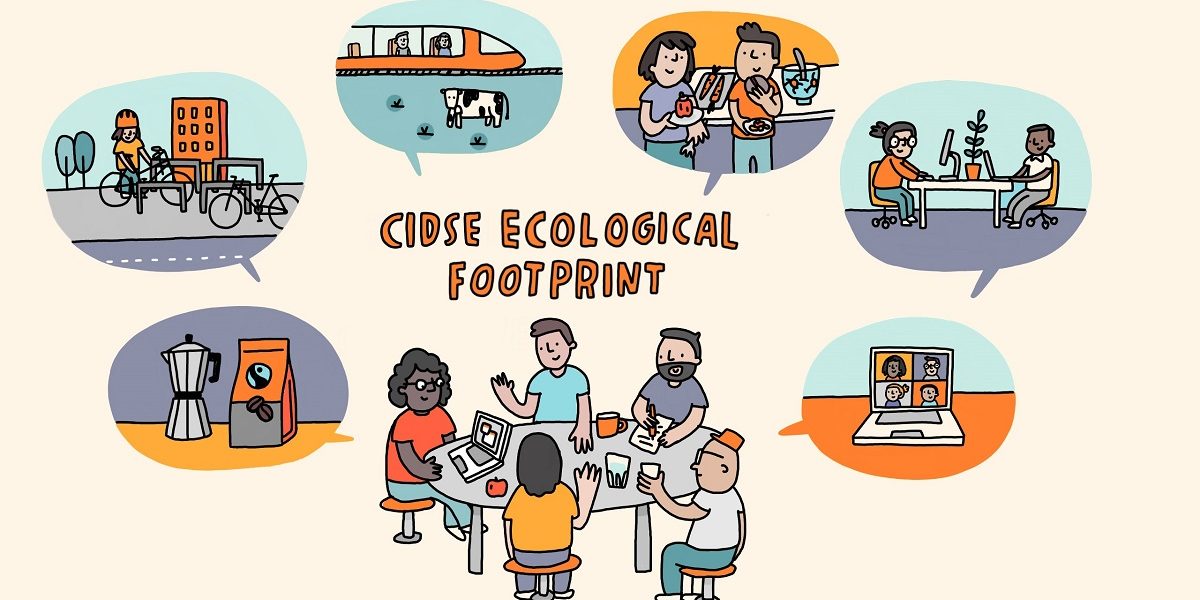In a recent webinar, CIDSE unveiled the “CIDSE Ecological Footprint”, a website gathering experiences and practices from CIDSE member organizations on assessing and reducing their environmental impact. At the launch, CIDSE President Lieve Herijgers, reminded us that: “The global change we want to achieve starts with the changes we make ourselves. And we can’t do it alone. We have to work together!”. She also stressed that the Ecological Footprint “aims to inspire and help us to continue reflecting, questioning and challenging ourselves and our organizations and take practical steps to minimize our environmental impact.”
The CIDSE secretariat and several member organizations have been thinking about the environmental impact of their own work for many years. For CIDSE, working on the ecological footprint is a fundamental issue as we firmly believe that our actions should reflect the deep change we want to see in our society.
The CIDSE Ecological Footprint is designed to further facilitate this process. It includes inspiring footprint stories from several CIDSE members, provides guidance on how to assess and embed work on ecological footprint in an organization and offers an overview of very concrete practices in various areas such as travel, office and activities. It also pinpoints specific ideas for further reflection to help our network continue its engagement for a reduced footprint.
With this project, we captured and collected our network’s knowledge and experiences, for the first time, allowing us to reflect and to learn from each other to do better for our common home. During the launch webinar, key sections of the CIDSE Ecological Footprint website were introduced by CIDSE members linking it to their own footprint journeys. Angelo Simonazzi from Entraide et Fraternité for example, shared their experience mentioning that “Having a written policy on sustainable development in place and receiving an environmental label really helped us increase staff, volunteer and donor motivation while at the same time demonstrating clearly our commitment to environmental causes.”
The work on the ecological footprint, however, is not only about policies, tasks and responsibilities. Dirk Van der Roost from Broederlijk Delen highlighted during his contribution that it is also important to organize pleasant activities linked to ecological footprint. Their organization, for example, regularly organizes “vegetarian potlucks, which are very popular” among staff. They also organized “a quiz on energy consumption” – linked to the energy scan they had carried out at their headquarters – “to encourage people to put in practice the things in their personal life”.
Many other inspiring footprint stories can be found in a dedicated section of the website. Having a space to exchange and learn from these and other’s experiences is crucial and CIDSE members agreed on the importance of the “need to share with other organizations” and “to build a community of support”.
The CIDSE Ecological Footprint can be consulted in English here and will be available in additional languages soon. So far, the website only includes examples from within the CIDSE network, however, in the future, we intend to have a wider exchange involving also partners and allies.
If you would like to share your organizations’ experience on ecological footprint or if you have additional information or resources, you are encouraged to contact Giorgio Gotra [gotra(at)cidse.org] or Nicky Broeckhoven [broeckhoven(at)cidse.org].

